Now we see a pretty clear benefit to being boosted in terms of cases, hospitalizations and probably death, although low total deaths cause a lot of bouncing around. Interestingly just having a two-dose series looks like low benefit at this point and we will see within a few months if the same thing happens in regard to boosters as we get further away from the date most boosters were received.
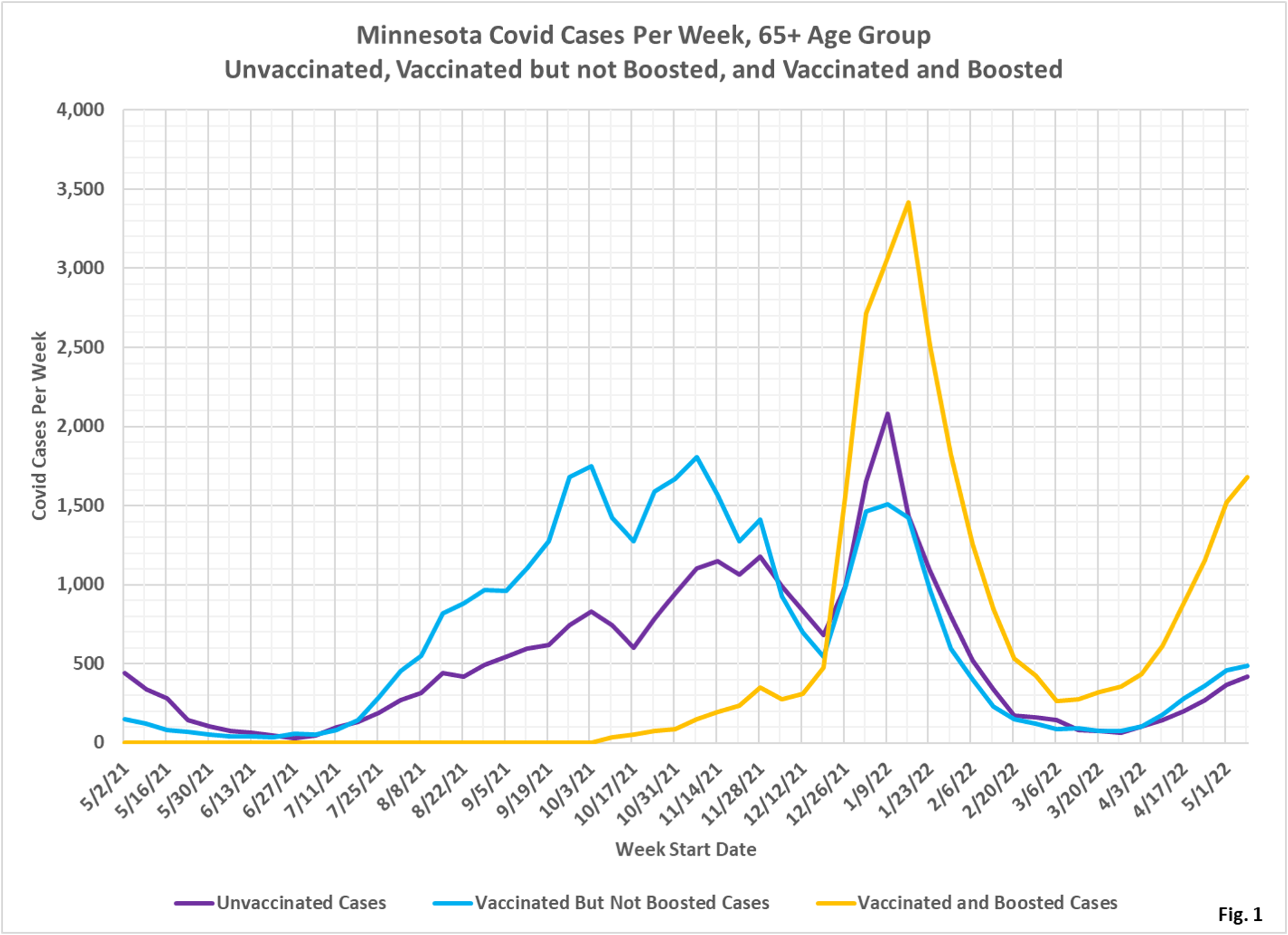
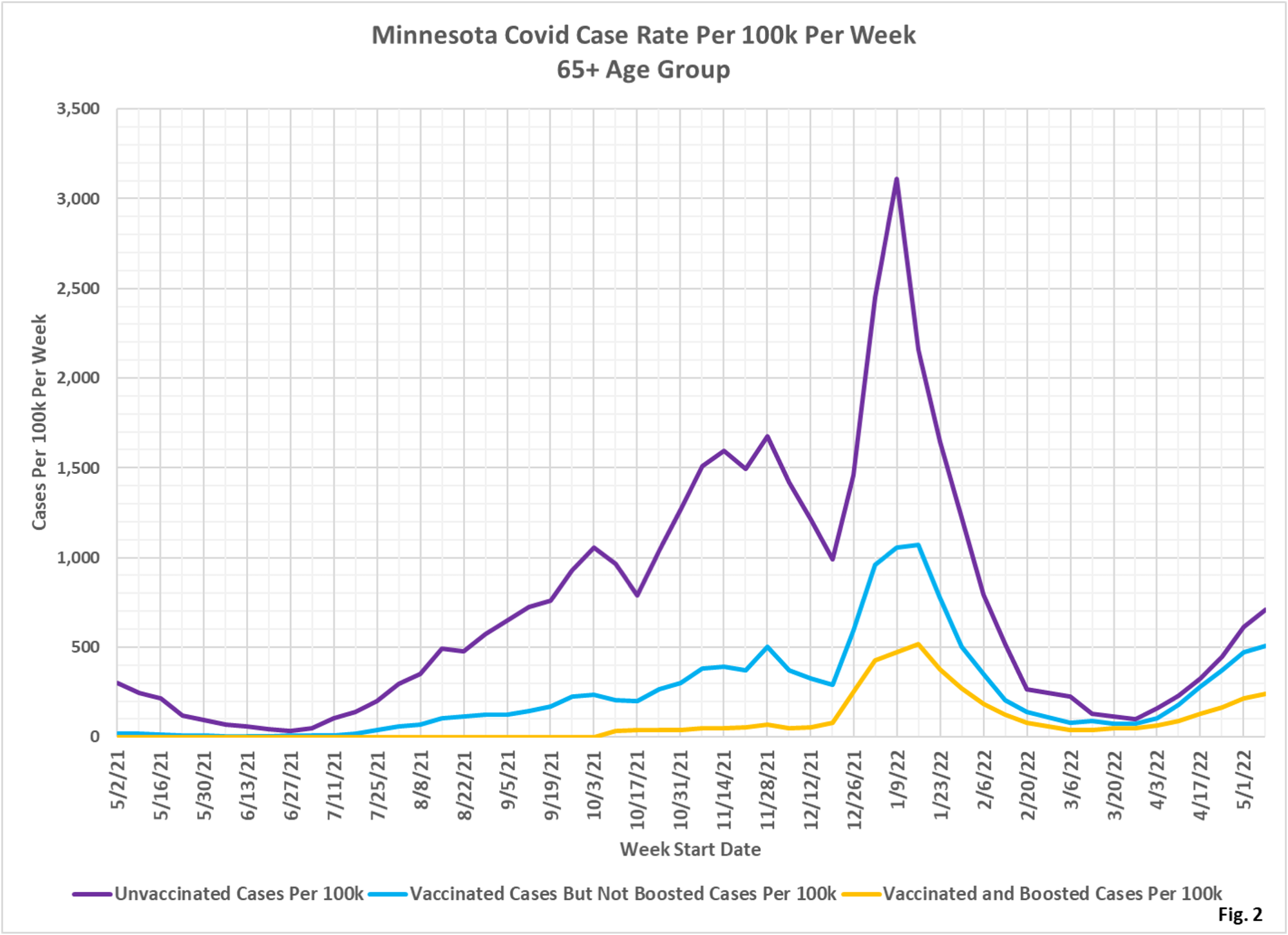
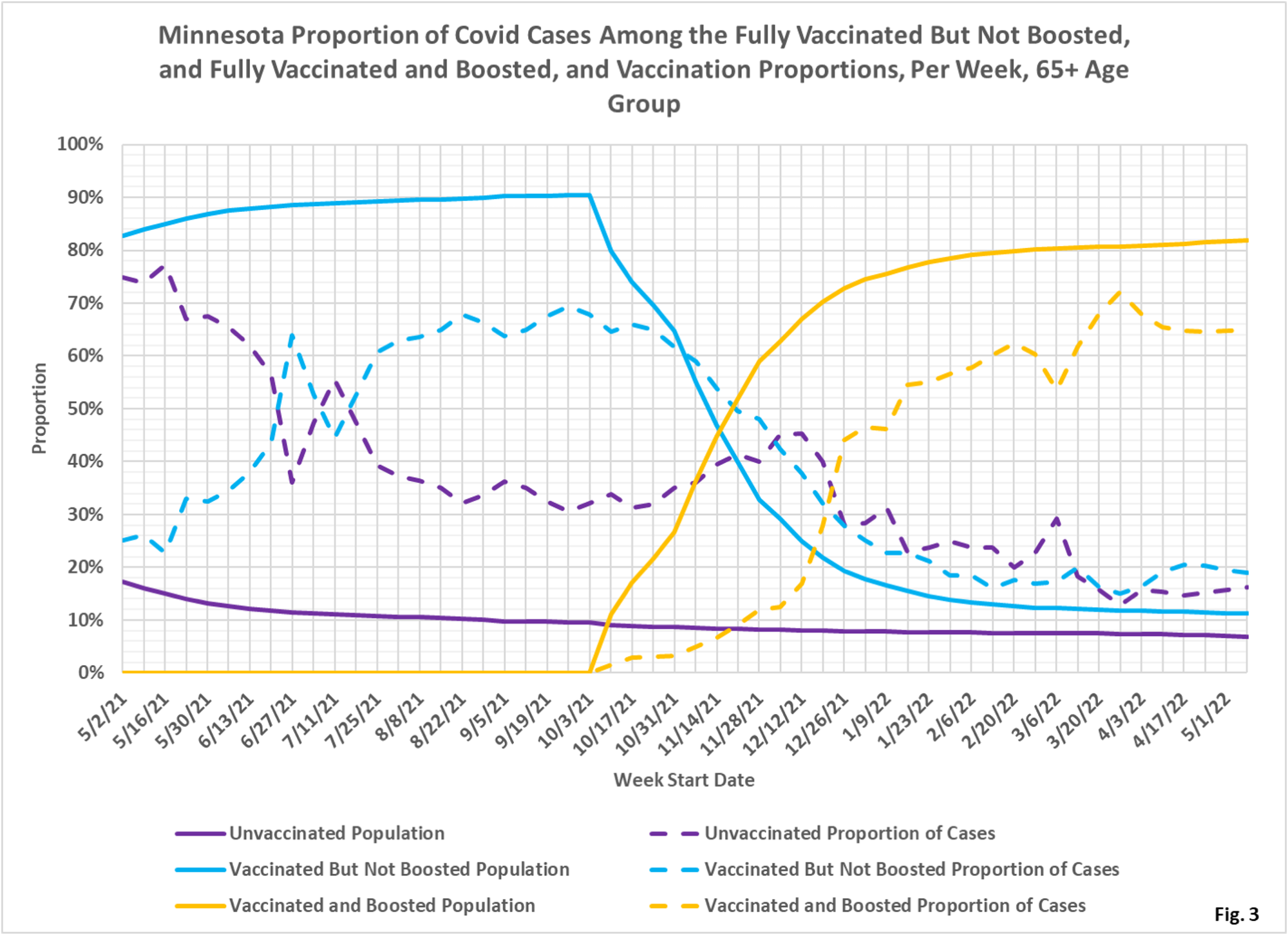
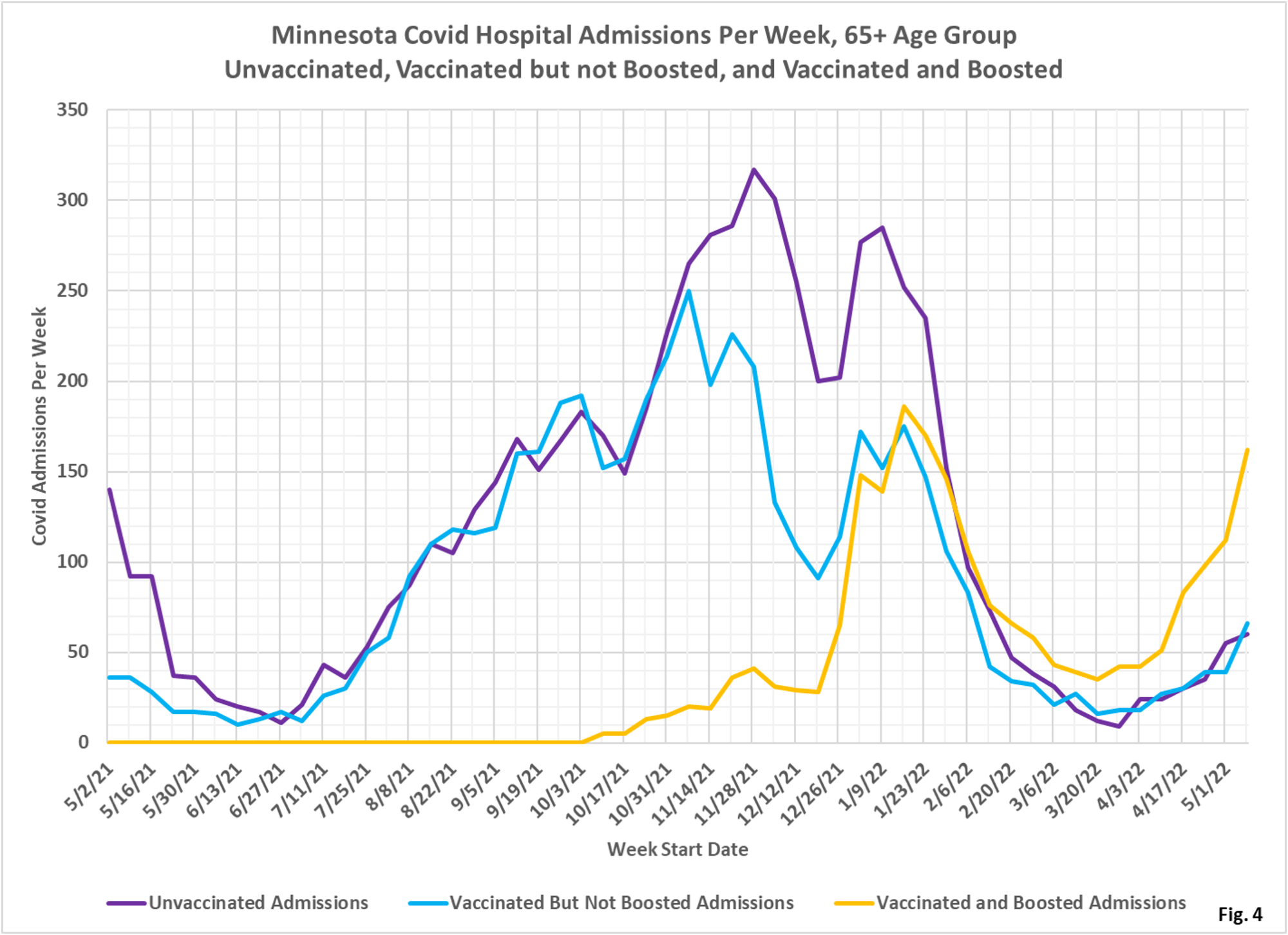
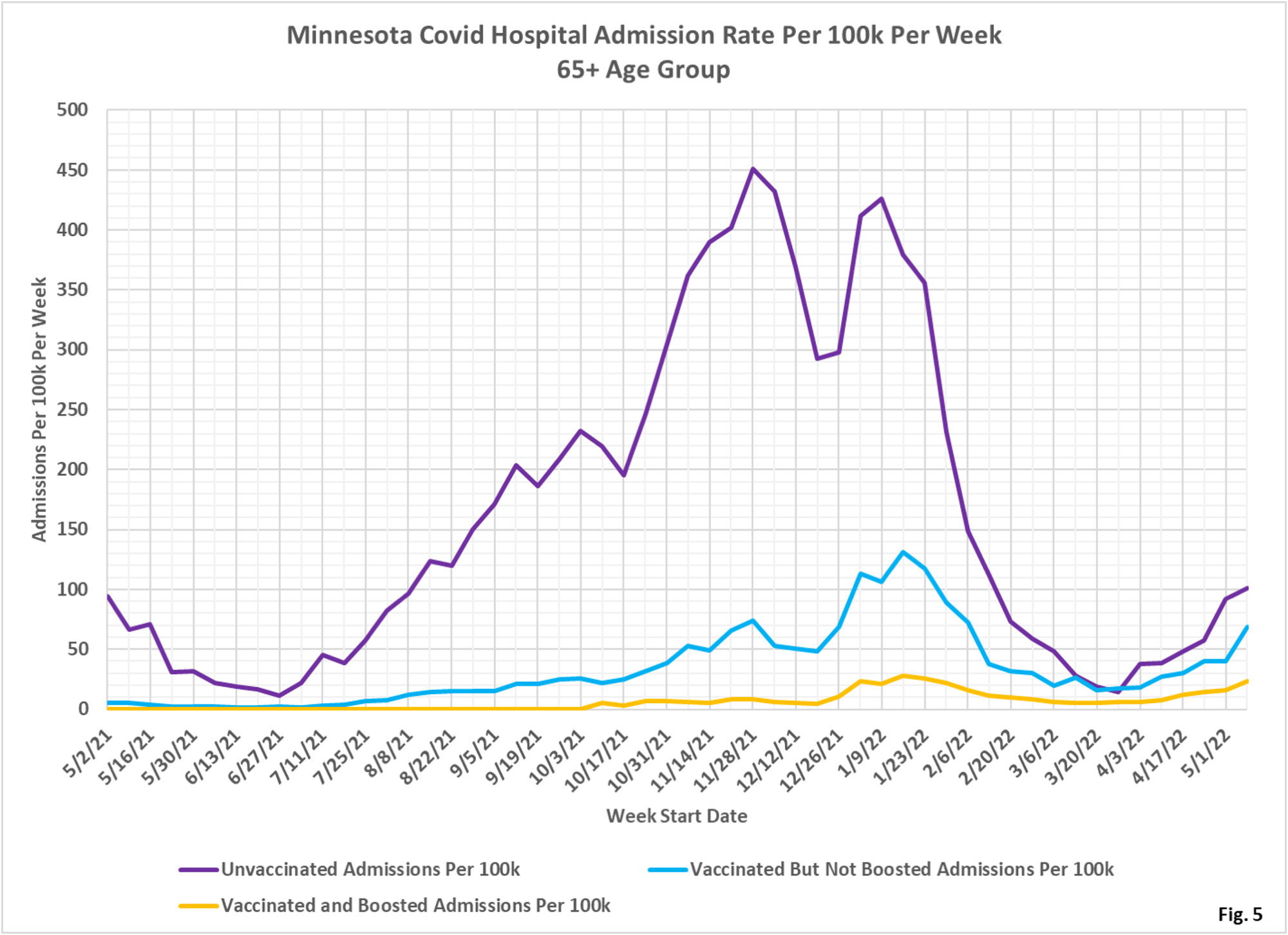
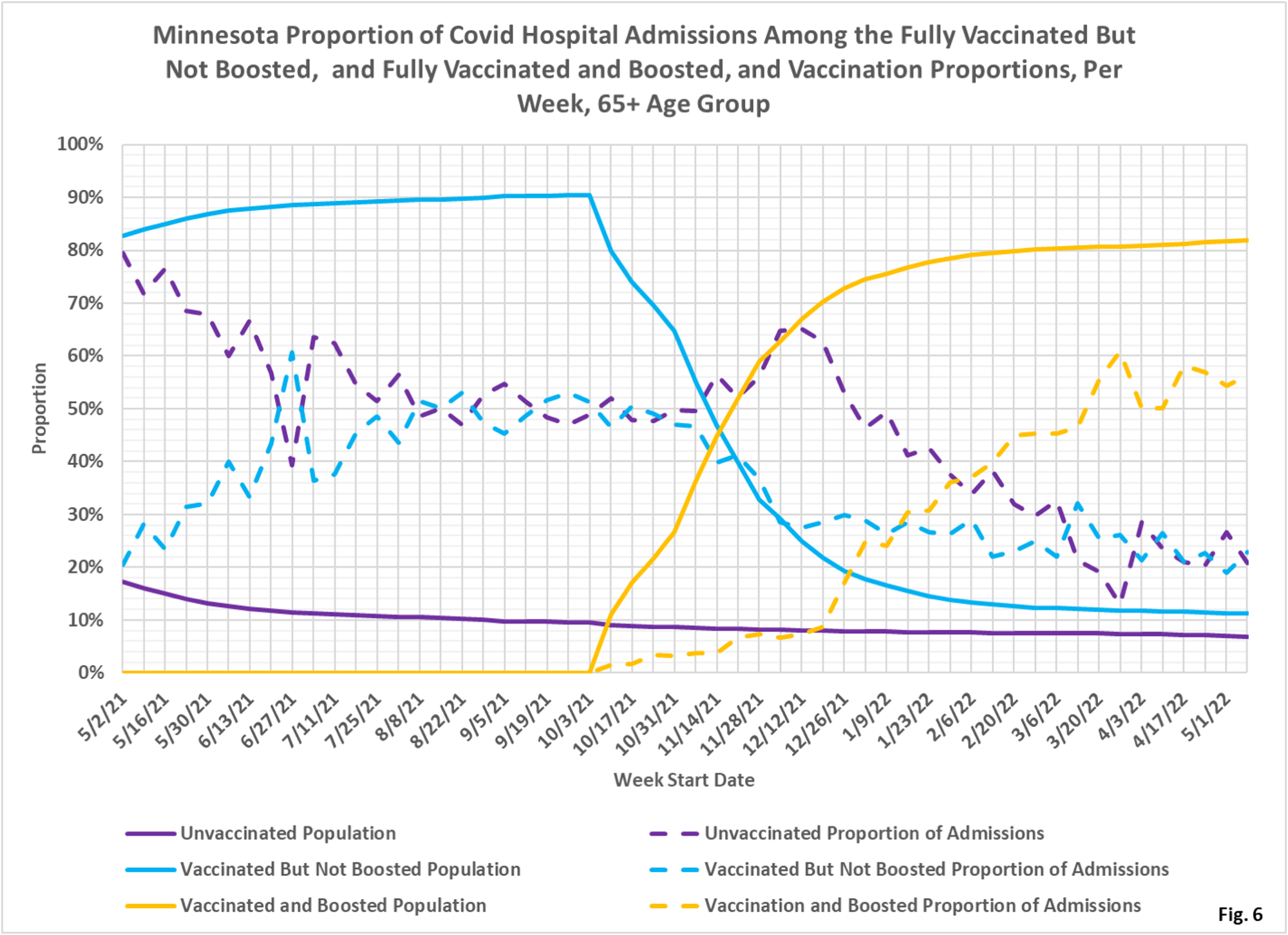
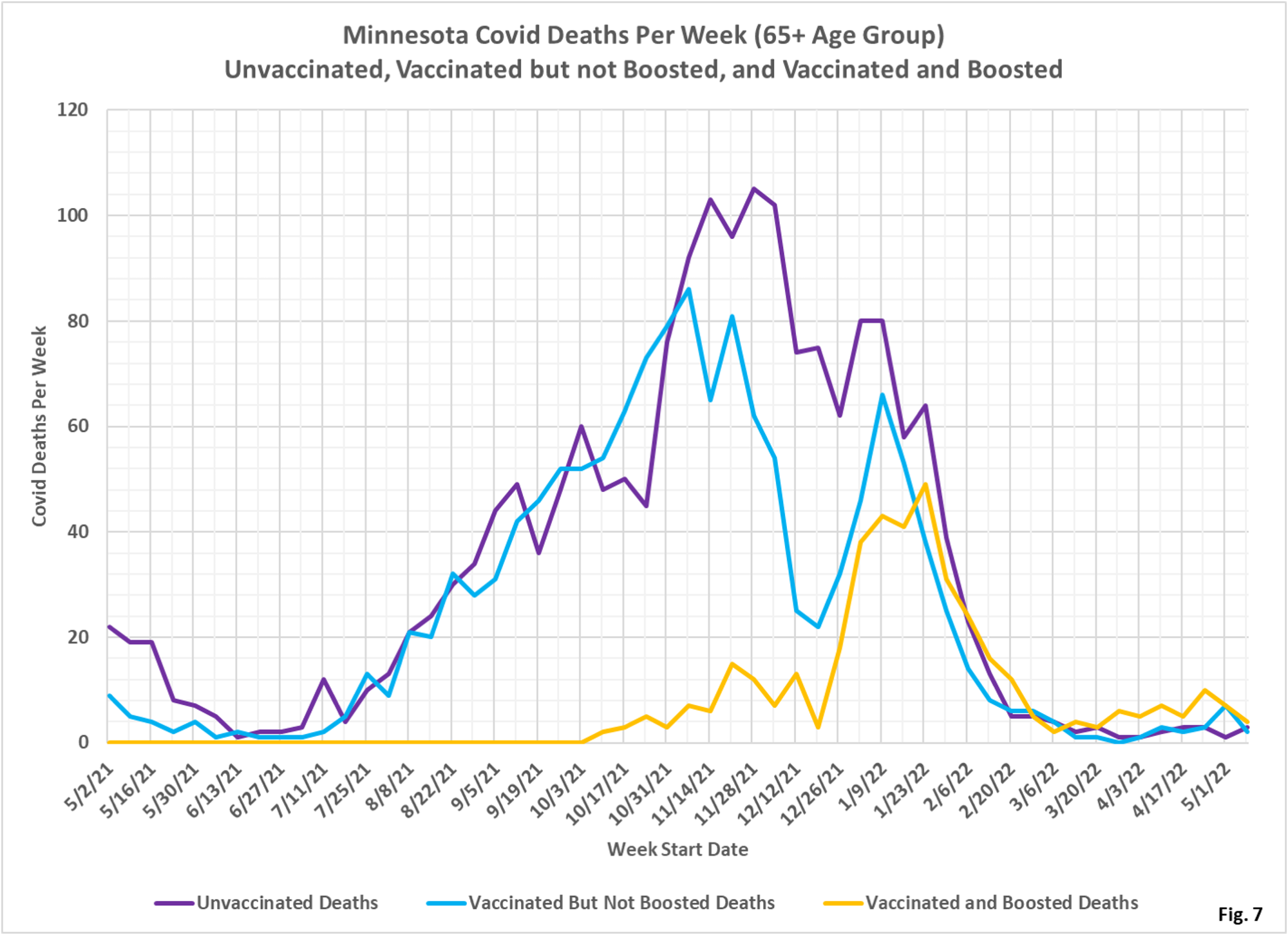
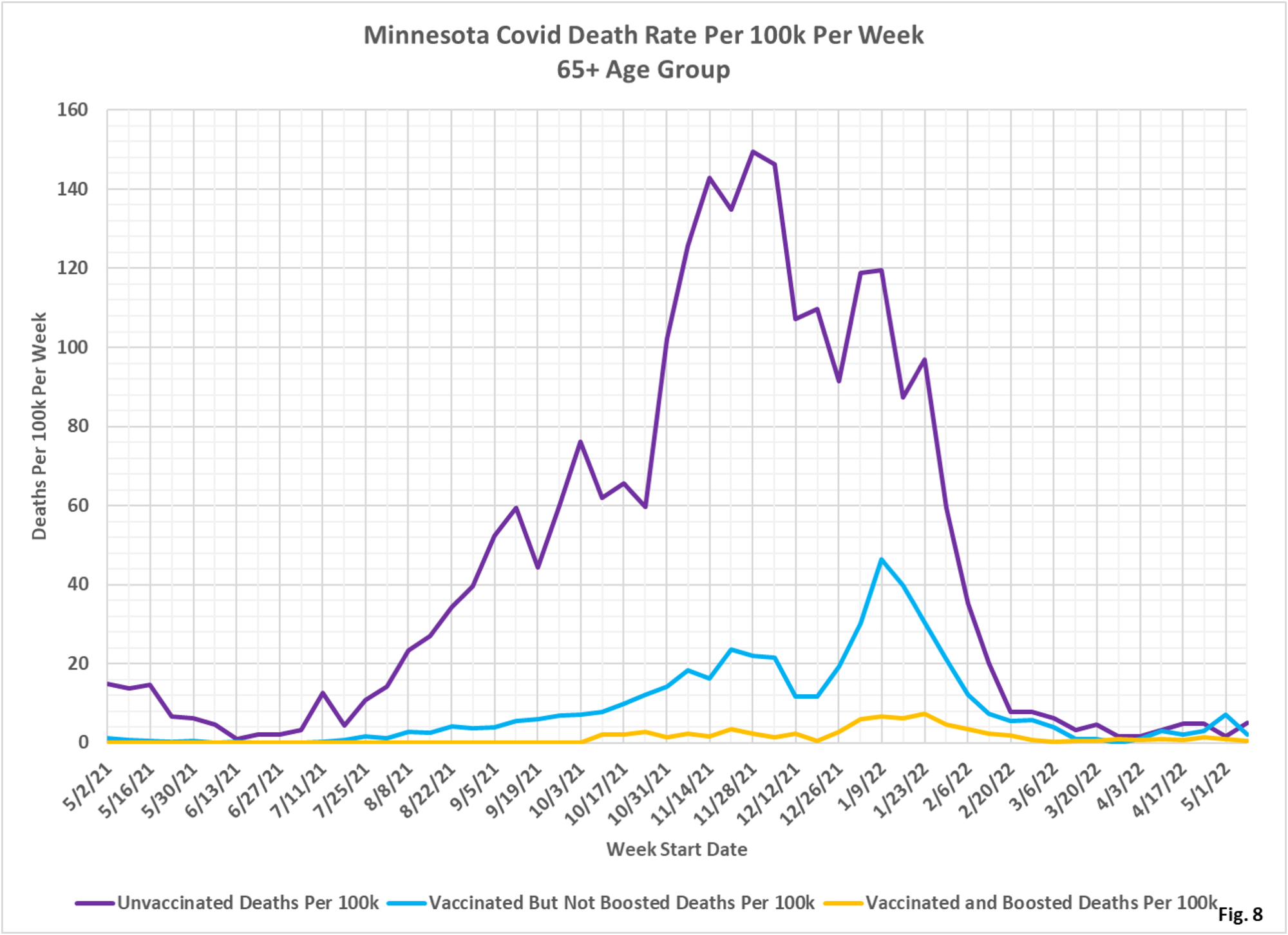
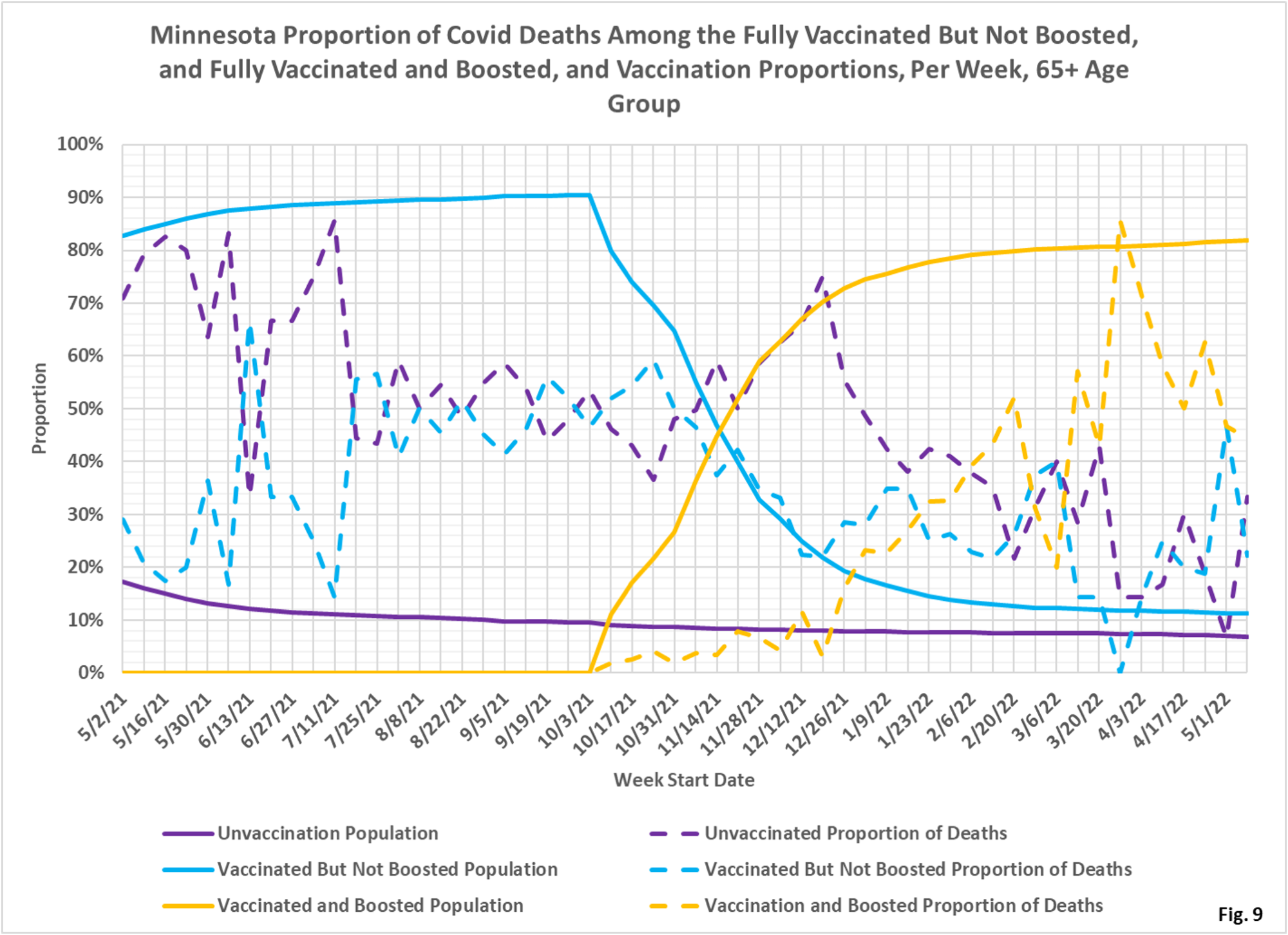 Dave’s notes:
Dave’s notes:
- In the following charts we can conclude, for the 65 and over age group, that being vaccinated and boosted does appear to lower the risk of an individual testing positive, being hospitalized, or dying from Covid.
- There are 9 charts in this set, 3 charts each for cases, hospital admissions, and deaths. Each set of 3 charts consists of the actual events per week (cases, admissions, or deaths); the rate per 100k each week, and the proportion of events compared to the proportion of the vaccinated population.
- Fig. 1: This chart plots the cases in the 65 and over age group per week among the unvaccinated, vaccinated but not boosted, and vaccinated and boosted populations each week. Since the week of 12/26/2021 there have been more cases each week among the boosted, rather than among the vaccinated but not boosted, or unvaccinated. However, this is not too surprising since a very large proportion of the 65+ age group is boosted (as will be seen in Fig. 3). The most recent week with data is the week of 5/08/2022, which marked the peak in the most recent wave of Covid cases. Next week’s breakthrough data should start to show decreases in the number of cases.
- Fig. 2: This chart displays the case rates per 100k for each subgroup in the 65+ age group. Consistently through the pandemic the unvaccinated have the highest rate of cases per 100k, with the boosted having the lowest rates of cases per 100k. This data supports the idea the vaccination reduces the risk of testing positive, and that being boosted offers an additional level of protection.
- Fig. 3: This chart displays the proportion of the 65 and over population who are unvaccinated (solid purple), vaccinated but not boosted (solid blue), and vaccinated and boosted (solid gold). For each population group we also display the proportion of cases each week (dashed lines of same color). Note that as people are boosted they are moved from the vaccinated subgroup to the boosted subgroup. Note also that over 80% of this age group is boosted, which is why looking at the rate of cases per 100k is the most accurate way of assessing risk, rather than looking at the actual numbers of cases. The way to interpret this chart is to compare the proportion of breakthroughs to the proportion of vaccinations for each group. Whenever the dashed breakthrough proportion line is below the solid vaccination line of the same color, then that category is underrepresented for population, and vaccination might be said to be beneficial (ignoring for now other confounding factors). For the week of 5/8/2022, for example, slightly over 80% of the age group was vaccinated and boosted (solid gold line) while this group accounted for only 65% of the cases (dashed gold line). We would interpret this to show that being boosted did indeed reduce an individual’s chances of testing positive for Covid for that week. On the other hand, we can see that being vaccinated but not boosted was very beneficial the week of 5/2/2021 for example (82% vaccinated, but only 25% of the cases) but over time the vaccinated but not boosted subgroup gradually lost the benefit of vaccination, and by the week of 5/2/2022 the vaccinated were 11% of the age group, but accounted for 19% of the cases.
- Fig. 4-6: These charts display the hospital admissions, hospital admission rates per 100k, and hospital admissions proportions for the 65+ age group, in an identical format to the case charts in Fig. 1 through Fig. 3. Similar to cases, the boosted have a majority of the admissions in recent months (Fig. 4), however the admissions per 100k for the unvaccinated are highest, with the vaccinated being second highest, and the boosted having the lowest rates of admissions (Fig. 5). Fig. 6 shows that admissions among the unvaccinated have been disproportionately high throughout the pandemic. Admissions among the vaccinated but not boosted follow the same pattern as cases, with early benefit switching to no benefit in recent months.
- Fig. 7-9: These charts display the deaths, deaths rates per 100k, and deaths proportions for the 65+ age group, in an identical format to the case charts in Fig. 1 through Fig. 3. Similar to cases, the boosted have had the greatest number of deaths each week in the past 2 months before falling to very low levels in the last couple weeks (Fig. 7). Fig. 8 shows that the boosted subgroup has had consistently lower rates of death per 100k, despite accounting for the highest number of deaths in recent months. Fig. 10 shows that deaths proportions are highly variable, especially in recent weeks when there are relatively few deaths, but that the boosted subgroup is under-represented for deaths since boosters were begun, and that both the vaccinated and unvaccinated are over-represented in recent months.
- All data is obtained from the Minnesota Department of Health (MDH) Vaccine Breakthrough Weekly Update web site https://www.health.state.mn.us/diseases/coronavirus/stats/vbt.html. A data file on this site, vbtadultcirates.xlsx, contains all of the age group data.
- MDH defines the fully vaccinated (what we have termed vaccinated but not boosted) as those who have not received a booster after completing their primary vaccination series, and had been vaccinated at least 14 days prior to testing positive.
- MDH defines the boosted as those who have received any additional vaccination shots after completing their primary vaccination series, and also received the booster at least 14 days prior to testing positive. In addition, booster doses were only counted after 8/13/2021, the date the CDC first began recommending booster shots.

 RSS - Posts
RSS - Posts